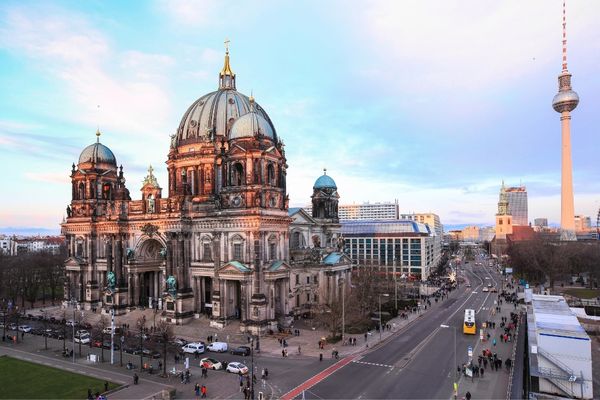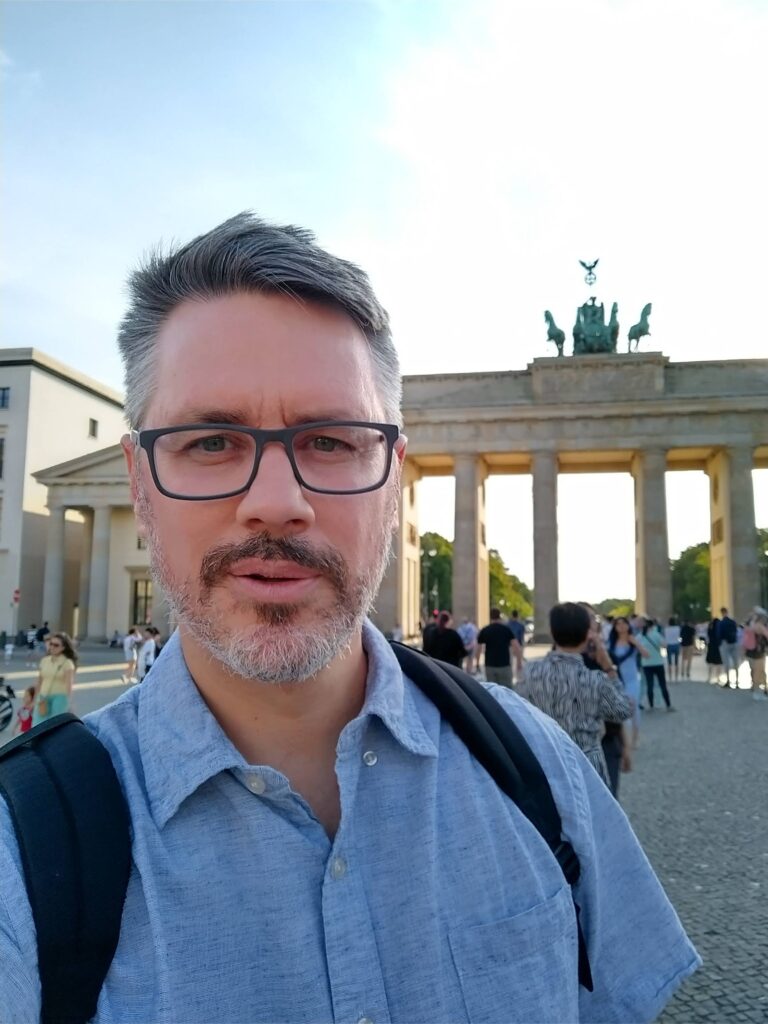Achtung!: UM-Flint students can travel to Berlin for (nearly) free

Whether it's a visit to the Brandenburg Gate, the Reichstag Building or the Berlin Wall, Germany's capital city is brimming with history no matter where you turn. The city, which dates back to the 13th century, remains one of the world's most popular tourist destinations.
Now imagine being able to immerse yourself in the history and culture of the city while having your trip almost entirely funded by someone other than yourself.
That dream is about to come true for some University of Michigan-Flint history majors and minors as part of the Wyatt Exploration Program, a one-of-a-kind experience focusing on global engagement and learning through experiences.
The program is named in honor of Dorothea Wyatt, who was one of the original 16 faculty members of UM-Flint when it was founded in 1956. Wyatt served as the first chair of the institution's history program and after her death in 2007, the university created an endowment in her name, which funds the program trips.
Participating students need only pay for their passports and carry some "walking around money" for food and souvenirs.
The program is open to all history majors and minors, and acceptance is not based on grade point averages but is dependent only on student enthusiasm and engagement.
The 2022-23 kickoff will be held at the Sloan Museum at 5 p.m., Sept. 21. It will feature music, food, games and prizes, and students will receive a Wyatt Program passport that they can get stamped at multiple events during the fall semester. Students can collect up to four stamps to be considered for program selection.
"We wanted to create a huge buzz around the program since we've been on a three-year hiatus," said Christopher Molnar, Wyatt fellow and UM-Flint associate professor of history. "I'm excited it's my year for the trip."
Molnar has completed extensive research on modern Germany, race and immigration in German and European history and the memory of World War II in postwar Europe. He first visited Germany in 1998 while on a family vacation, and was overtaken by a sense of wonder as he began to explore the neighborhood his family was staying in. "That experience led me down the path of continuing to learn about German language and history as an undergraduate student," said Molnar.
Ten years later, he returned to Germany, spending time in Berlin while working on his dissertation for graduate school, which gave him plenty of time to explore the city.
"Berlin is gigantic, it is about nine times the size of Paris. There's always something new to see, eat or experience."
Molnar adds that walking around Berlin was an important part of his immersive learning experience while writing his dissertation and he wants to share that with the Wyatt Program students.
"The students could miss so much texture if all they see is the central district and the big (tourist) sites in Berlin. I want to introduce them to the different side of the city," said Molnar.

He made several key observations during his explorations: the first being that Berlin is a highly modernized city that is home to large populations of Turkish, Arab and Jewish communities.
The second observation was that even though east and west Berlin had unified after the wall came down in 1989, class division still stands in place. For instance, west Berlin features more ornamental living spaces inhabited by the upper middle class. On the other hand, housing in east Berlin has a more drab appearance and is home to artists and musicians.
The last observation he made was that there are "stolpersteine," or stumbling blocks, that serve as memorials markers for Jewish people who were killed in the Holocaust. They include information including the person's birthdate, when they were arrested and which concentration camp they were taken to.
"The stumbling blocks aren't rare, and can be found all over the city," said Molnar, who said that finding the stumbling blocks highlights the importance of an immersive learning experience.
Students that are Interested in taking part in this year's program are encouraged to register for the kickoff event and attend in-person. Students can also watch the kickoff event online. For more information about the Wyatt Program, visit its webpage.
Related Posts
No related photos.
Madeline Campbell
Madeline Campbell is the communications specialist for the College of Arts & Sciences. She can be reached at [email protected].